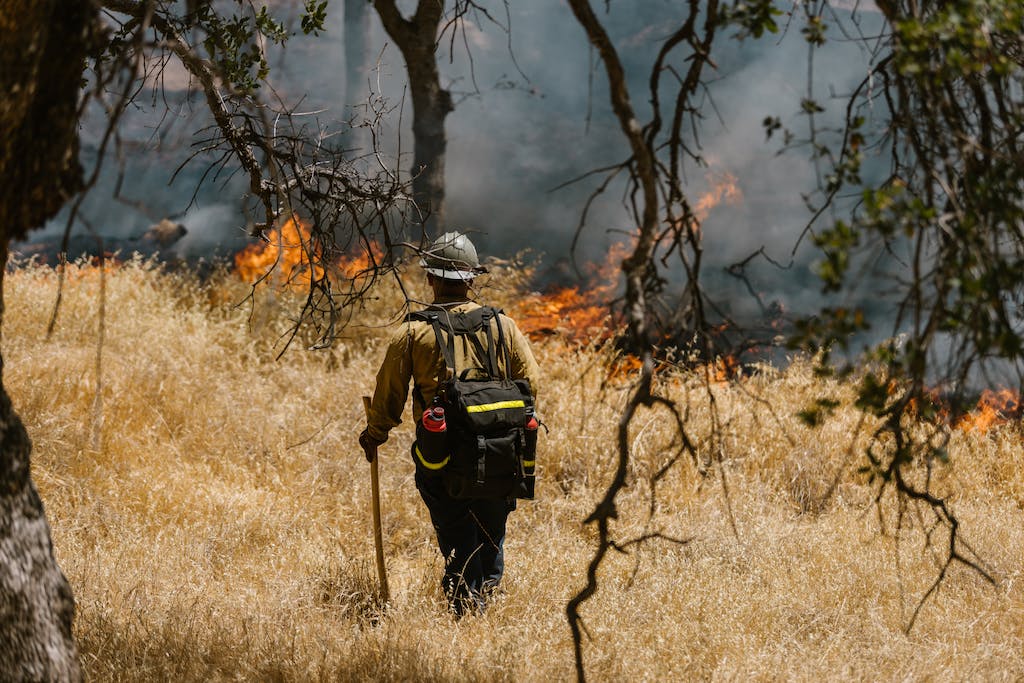Climate Convergence: The Twin Threats of Heat and Smoke Worsening California’s Public Health

In a groundbreaking study, researchers have unveiled the hidden dangers of climate change in California, spotlighting the compounded effects of extreme heat and wildfire smoke on cardiorespiratory hospitalizations. The study presents a disturbing trend: as these climate hazards increasingly collide, the health of Californians, especially in vulnerable communities, is at unprecedented risk. The team’s research methodology was robust, leveraging high-resolution satellite imagery and environmental monitoring data from 2006 to 2019 to assess the impact of heat and smoke across California’s zip codes.
Discover: California’s billion-dollar river in the sky
Discover: Climate Whiplash Undermines California’s Economy
By analyzing the daily hospitalization rates in relation to occurrences of extreme heat, wildfire smoke, and their combination, the study offers a comprehensive look at the spatial and demographic dimensions of climate hazard impacts on health.
Findings: A Clear and Present Danger to Public Health
The analysis revealed a pronounced relationship between extreme heat and wildfire smoke, leading to a significant increase in daily hospitalizations for cardiorespiratory issues. This effect was not uniform across the state; it varied significantly, pointing to the fact that some communities bear a heavier burden than others. A stark finding of the study is the disproportionate impact on underprivileged communities, characterized by lower socio-economic status, higher population densities, and significant racial and ethnic minority populations. These communities experienced heightened effects, highlighting a pressing environmental justice issue that demands immediate attention and action.
Policy Implications: A Call for Inclusive and Adaptive Strategies
The research underscores the urgent need for evidence-based policy development incorporating climate hazards and environmental justice considerations. Targeted interventions, such as establishing clean air and cooling centers in the most affected areas, could significantly mitigate the adverse health impacts. Moreover, the study advocates for integrating early warning systems and health advisories that account for the compound effects of extreme heat and wildfire smoke. Experts from the fields of climate science and public health emphasize the importance of this study in understanding the multifaceted impacts of climate change on human health.
Community Reactions: Voices from the Front Lines
Residents from affected communities share their experiences and concerns, echoing the study’s findings. “During the wildfire season, it feels like a double attack with the heat,” says a resident from one of the high-risk zip codes. “Knowing that our community is more vulnerable makes it even more critical for us to have targeted support and resources.” While the study presents a grim picture of the current state of affairs, it also opens avenues for proactive measures and innovative solutions. The challenge lies in translating these findings into practical policy actions that are inclusive and adaptive to the changing climate landscape.
Global Context: A Universal Challenge
The implications of this study extend beyond California, reflecting a global challenge faced by communities worldwide as they grapple with the health impacts of climate change. It serves as a model for other regions to assess the effects of climate hazards on health and develop tailored strategies to combat them. The findings call for urgent action to address the compounded impact of extreme heat and wildfire smoke on public health. As California and the world at large face the escalating challenges of climate change, this study underscores the critical need for a concerted effort from policymakers, health professionals, and communities to mitigate the adverse effects and safeguard the health of vulnerable populations.
In conclusion, the study sheds light on the compounded risks posed by climate change and emphasizes the importance of integrating climate adaptation strategies with public health initiatives. As we move forward, the insights from this research could be instrumental in guiding policy development, enhancing public health preparedness, and fostering a more resilient and equitable society in the face of climate change.
Climate Crisis 24/7 used generative AI technology to help produce this article, which a human editor at Climate Crisis 24/7 edited. Climate Crisis 24/7 is dedicated to accuracy and transparency; any article that uses AI will be noted.
This study, published in Science Advances, was conducted by a team of researchers led by Chen Chen and Lara Schwarz.
More from ClimateCrisis 247
- Wake-Up call? 30 Million People Could Die Each Year From Climate Change, study says
- It took a lot of balls to bring you this story about microplastics Making a home in Men’s testicles
- Microsoft in new Scope 3 bid as AI emissions soar
- For banks, transparency sets the tone






